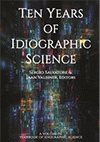
Ten Years of Idiographic Science
Edited by:
Sergio Salvatore, University of Salento
Jaan Valsiner, Niels Bohr Professor of Cultural Psychology, Aalborg University
A volume in the series: Yearbook of Idiographic Science. Editor(s): Sergio Salvatore, University of Salento. Jaan Valsiner, Niels Bohr Professor of Cultural Psychology, Aalborg University.
Published 2023
The first volume of the Yearbook of Idiographic Science (YIS) was published on 2009. In a nutshell, the idea at the grounds of the YIS project is that idiography and nomothetic are not juxtaposed logics and that the science cannot but be both nomothetic - in the aim - and idiographic - in the modes. About thirteen years later, the sense and the direction of the YIS project envisaged in the first volume’s introduction - together with the difficulties to pursue it - are still alive and valid. Thus, to both celebrate the milestone of the tenth issue and to plan the future, we asked to some colleagues, almost all contributors of previous volumes, to discuss what idiographic science means today, and what can mean tomorrow.
The works they have generously provided are very instructive - each of them pictures a peculiar perspective on idiography that enables to recognize old and new challenges, thus paving the way to innovative ideas and directions.
CONTENTS
The Hard Task to Make Idiographic Science, Sergio Salvatore and Jaan Valsiner. Psychology Investigations on Radicalization Processes: The Quest for Studies on the Ontogenesis of Moral Values, Angela Uchoa Branco. Idiography and the Fractal Nature of Psychological Research, Luke J. Buhagiar and Gordon Sammut. The Semiotic Forms of Continuity and Discontinuity in the Narrative Process: The Psychological Tension Between the Idiographic and the Nomothetic, Raffaele De Luca Picione and Maria Francesca Freda. Why to Use “Idiographic” Approaches in Psychological Research? Santo Di Nuovo. Idiographic Dimensions of Marion Milner’s On Not Being Able to Paint: Philosophical Linkages, Robert E. Innis. Making Idiographic Research Matter, Mariann Märtsin and Annela Samuel. “Persons in Time” as a Concern of Idiographic Psychology, Giuseppe Mininni. An Arts-Informed Idiographic Perspective in the Oncological Context: A Humanistic-Existential View, Alfonso Santarpia. TEA as a Proposal for Translation Between an Idiographic Approach and Nomothetic Approach, Tatsuya Sato and Misato Fukuyama. Towards a Hermeneutical Psychology Before Idiography, Paul Stenner. The Contemporary Importance of the Idiographic in Mental Healthcare, Tim Thornton. The Contemporary Importance of the Idiographic in Mental Healthcare, Tania Zittoun, Martina Cabra, Oliver Clifford Pedersen, and Hana Hawlina. About the Authors.
-
Paperback979-8-88730-027-6
Web price: $45.04 (Reg. 52.99)
-
Hardcover979-8-88730-028-3
Web price: $80.74 (Reg. 94.99)
- eBook979-8-88730-029-0

- PSY031000 - PSYCHOLOGY: Social Psychology
- PSY029000 - PSYCHOLOGY: Reference
- PSY030000 - PSYCHOLOGY: Research & Methodology
-
 Digital Developments
Perspectives in Psychology
Digital Developments
Perspectives in Psychology
-
 Idiographic Approach to Health
Idiographic Approach to Health
-
 Making Sense of Infinite Uniqueness
The Emerging System of Idiographic Science
Making Sense of Infinite Uniqueness
The Emerging System of Idiographic Science
-
 Methods of Psychological Intervention
Methods of Psychological Intervention
-
 Multicentric Identities in a Globalizing World
Multicentric Identities in a Globalizing World
-
 One Dog Is Enough
Ivan P. Pavlov’s Contributions to Idiographic Science
One Dog Is Enough
Ivan P. Pavlov’s Contributions to Idiographic Science
-
 Reflexivity and Psychology
Reflexivity and Psychology

